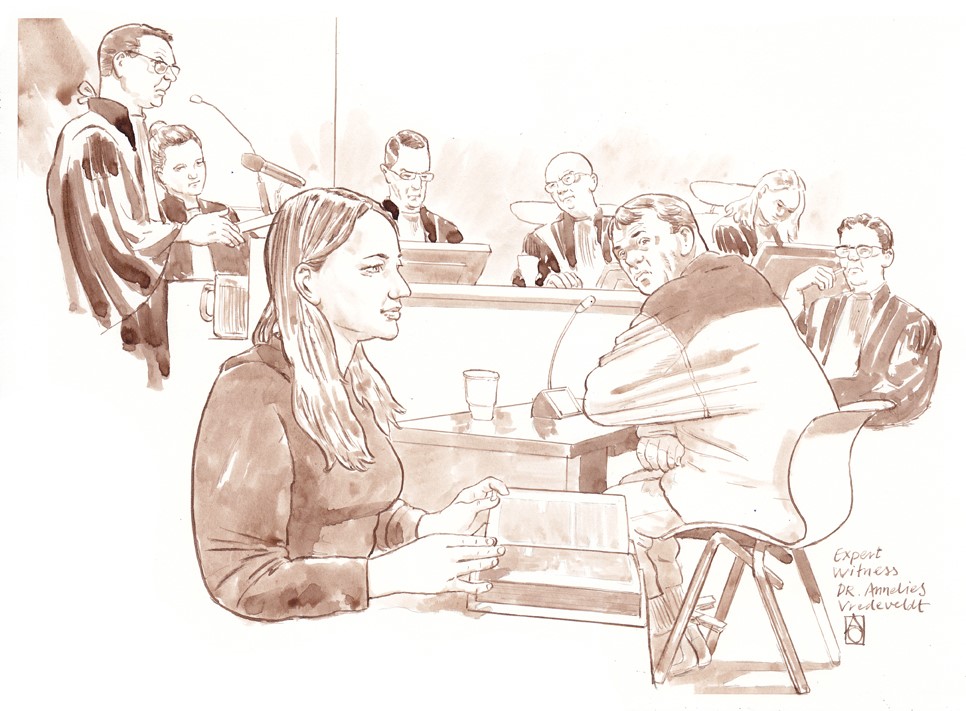
Annelies Vredeveldt (Fellow 2013–18)
Breaking New Ground in Eyewitness Interviewing
In her Branco Weiss project Annelies Vredeveldt questioned a seemingly evident assumption: witnesses of crimes should always be questioned individually. By the end of her fellowship in 2018, Annelies had turned part of her field upside-down as her experiments had convincingly demonstrated the additional potential of joint interviews. Currently, Annelies is an Associate Professor at the Department of Criminal Law and Criminology at VU Amsterdam and the director of the Amsterdam Laboratory for Legal Psychology that she co-founded. Additionally, she holds an ERC starting grant, appears regularly as an expert witness in criminal cases, and serves on advisory committees of the Netherlands Register of Court Experts and the Dutch National Police.
When Annelies Vredeveldt first presented her project idea as part of the candidate interviews for the Branco Weiss Fellowship in spring 2013, the faculty members present felt that this idea was exactly the right thing for a fellowship! Branco Weiss himself did not shy away from taking risks, and he wanted to support young researchers who thought like him.
In her project, Annelies initiated an investigation that ran counter to all textbook opinions in her field. It was firmly established in legal psychology that witnesses should always be questioned individually so that they cannot influence one another. Annelies questioned this doctrine, however, and suggested scientifically investigating whether eyewitness interviews are better conducted individually or collectively.
Five years later, by the time Annelies’s fellowship had expired, she had turned part of her field upside-down. Through careful implementation of the research project, she was able to question the previously ingrained idea and enrich eyewitness investigations with a new tool: the collective interview. Annelies had pointed out that earlier studies on eyewitness interviews had brought in fake witnesses who deliberately produced false information about the witnessed event and thus increased the probability of errors. Those studies showed that errors can be transferred from one person’s memory to another, but disregarded the possibility that witnesses might also correct each other’s errors.
Annelies, on the other hand, followed discussions between two real eyewitnesses. These were preceded by a one-to-one interview in order to first gather independent evidence. It quickly emerged that two witnesses who took part in a joint interview made significantly fewer errors than two witnesses who were questioned individually. After hearing each other, the witnesses even remembered new details that neither of them had mentioned before.
Laboratory conditions were not enough for Annelies. She therefore embarked on cooperation with various police units in the Netherlands. The task now is to conduct interviews with real eyewitnesses to serious crimes. Her aim is to determine whether the new procedure is effective for police investigations and/or for collecting evidence in criminal cases.
Annelies Vredeveldt’s work is a prime example of a successful Branco Weiss Fellowship. She questioned existing doctrines and single-handedly developed a project that unlocked new potential – on an extremely important topic, to boot. In doing so, she also gained fundamental insights into how questioning leads to helpful results. “I want everyone to know how to get the best possible memories of an event,” says Annelies. “When witnesses communicate effectively, they can improve each other’s memories.”
